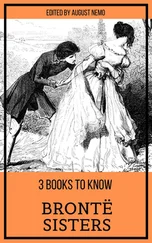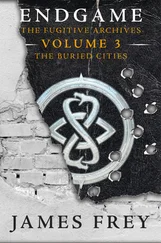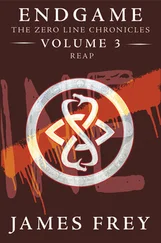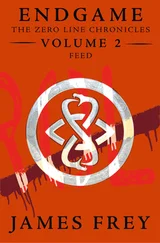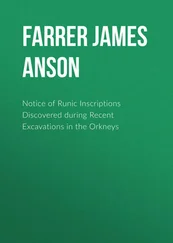James Farrer - Books Condemned to be Burnt
Здесь есть возможность читать онлайн «James Farrer - Books Condemned to be Burnt» — ознакомительный отрывок электронной книги совершенно бесплатно, а после прочтения отрывка купить полную версию. В некоторых случаях можно слушать аудио, скачать через торрент в формате fb2 и присутствует краткое содержание. Жанр: foreign_antique, foreign_prose, на английском языке. Описание произведения, (предисловие) а так же отзывы посетителей доступны на портале библиотеки ЛибКат.
- Название:Books Condemned to be Burnt
- Автор:
- Жанр:
- Год:неизвестен
- ISBN:нет данных
- Рейтинг книги:4 / 5. Голосов: 1
-
Избранное:Добавить в избранное
- Отзывы:
-
Ваша оценка:
- 80
- 1
- 2
- 3
- 4
- 5
Books Condemned to be Burnt: краткое содержание, описание и аннотация
Предлагаем к чтению аннотацию, описание, краткое содержание или предисловие (зависит от того, что написал сам автор книги «Books Condemned to be Burnt»). Если вы не нашли необходимую информацию о книге — напишите в комментариях, мы постараемся отыскать её.
Books Condemned to be Burnt — читать онлайн ознакомительный отрывок
Ниже представлен текст книги, разбитый по страницам. Система сохранения места последней прочитанной страницы, позволяет с удобством читать онлайн бесплатно книгу «Books Condemned to be Burnt», без необходимости каждый раз заново искать на чём Вы остановились. Поставьте закладку, и сможете в любой момент перейти на страницу, на которой закончили чтение.
Интервал:
Закладка:
The strong feeling against Episcopacy, which first meets us in works like Fish's Supplication of Beggars , or Tyndale's Practice of Prelates , and which found vent at last, as a powerful contributory cause, in the Revolution of the seventeenth century, was most clearly pronounced under Elizabeth in the famous tracts known as those of Martin Marprelate; and among these most bitterly in a small work that was burnt by order of the bishops, entitled a Dialogue wherein is plainly laide open the tyrannical dealing of Lord Bishops against God's Church, with certain points of doctrine, wherein they approve themselves (according to D. Bridges his judgement) to be truely Bishops of the Divell (1589). This is shown in a sprightly dialogue between a Puritan and a Papist, a jack of both sides, and an Idol ( i. e. , church) minister, wherein the most is made of such facts as that the Bishop of St. David's was summoned before the High Commission for having two wives living, and that Bishop Culpepper, of Oxford, was fond of hawking and hunting. It is significant that this little tract was reprinted in 1640, on the eve of the Revolution.
I pass now to a book of great political and historical interest: The Conference about the Succession to the Crown of England (1594), attributed to Doleman, but really the handiwork of Parsons, the Jesuit, Cardinal Allen, and others. In the first part, a civil lawyer shows at length that lineal descent and propinquity of blood are not of themselves sufficient title to the Crown; whilst in the second part a temporal lawyer discusses the titles of particular claimants to the succession of Queen Elizabeth. Among these, that of the Earl of Essex, to whom the book was dedicated, is discussed; the object of the book being to baffle the title of King James to the succession, and to fix it either on Essex or the Infanta of Spain. No wonder it gave great offence to the Queen, for it advocated also the lawfulness of deposing her; and it throws some light on those intrigues with the Jesuits which at one time formed so marked an incident in the eventful career of that unfortunate earl. Great efforts were made to suppress it, and there is a tradition that the printer was hanged, drawn, and quartered.
The book itself has played no small part in our history, for not only was Milton's Defensio mainly taken from it, but it formed the chief part of Bradshaw's long speech at the condemnation of Charles I. In 1681, when Parliament was debating the subject of the exclusion of the Duke of York from the succession, it was thought well to reprint it; but only two years later it was among the books which had the honour of being condemned to the flames by the University of Oxford, in its famous and loyal book-fire of 1683 (see p. 194 Конец ознакомительного фрагмента. Текст предоставлен ООО «ЛитРес». Прочитайте эту книгу целиком, купив полную легальную версию на ЛитРес. Безопасно оплатить книгу можно банковской картой Visa, MasterCard, Maestro, со счета мобильного телефона, с платежного терминала, в салоне МТС или Связной, через PayPal, WebMoney, Яндекс.Деньги, QIWI Кошелек, бонусными картами или другим удобным Вам способом.
).
But if the history of the book was eventful, how much more so was that of its chief author, the famous Robert Parsons, first of Balliol College, and then of the Order of Jesus! Parsons was a very prince of intrigue. To say that he actually tried to persuade Philip II. to send a second Armada; that he tried to persuade the Earl of Derby to raise a rebellion, and then is suspected of having poisoned him for not consenting; that he instigated an English Jesuit to try to assassinate the Queen; and, among other plans, wished to get the Pope and the Kings of France and Spain to appoint a Catholic successor to Elizabeth, and to support their nominee by an armed confederacy, is to give but the meagre outline of his energetic career. The blacksmith's son certainly made no small use of his time and abilities. His life is the history in miniature of that of his order as a body; that same body whose enormous establishments in England at this day are in such bold defiance of the Catholic Emancipation Act, which makes even their residence in this kingdom illegal.
Doleman's Conference was answered in a little book by Peter Wentworth, entitled A Pithy Exhortation to Her Majesty for establishing her Successor to the Crown , in which the author advocated the claims of James I. The book was written in terms of great humility and respect, the author not being ignorant, as he quaintly says, "that the anger of a Prince is as the roaring of a Lyon, and even the messenger of Death." But this he was to learn by personal experience, for the Queen, incensed with him for venturing to advise her, not only had his book burnt, but sent him to the Tower, where, like so many others, he died. So at least says a printed slip in the Grenville copy of his book.
But Wentworth is better and more deservedly remembered for his speeches than for his book – his famous speeches in 1575, and again in 1587, in Parliament in defence of the Commons' Right of Free Speech, for both of which he was temporarily committed to the Tower. Rumours of what would please or displease the Queen, or messages from the Queen, like that prohibiting the House to interfere in matters of religion, in those days reduced the voice of the House to a nullity. Wentworth's chief question was, "Whether this Council be not a place for any member of the same here assembled, freely and without control of any person or danger of laws, by bill or speech to utter any of the griefs of this Commonwealth whatsoever, touching the service of God, the safety of the prince and this noble realm." Yet so servile was the House of that period, that on both occasions it disclaimed and condemned its advocate – on the first occasion actually not allowing him to finish his speech. Yet, fortunately, both his speeches live, well reported in the Parliamentary Debates.
To pass from politics to poetry; little as Archbishop Whitgift's proceedings in the High Commission endear his name to posterity, I am inclined to think he may be forgiven for cleansing Stationers' Hall by fire, in 1599, of certain works purporting to be poetical; such works, namely, as Marlowe's Elegies of Ovid , which appeared in company with Davies's Epigrammes , Marston's Metamorphosis of Pigmalion's Image , Hall's Satires , and Cutwode's Caltha Poetarum; or, The Bumble Bee . The latter is a fantastic poem of 187 stanzas about a bee and a marigold, and deserved the fire rather for its insipidity than for the reasons which justified the cleansing process applied to the others, the youthful productions of men who were destined to attain celebrity in very different directions of life.
Marlowe, like Shakespeare, from an actor became a writer of plays; but though Ben Jonson extolled his "mighty muse," I doubt whether his Edward II. , Dr. Faustus , or Jew of Malta , are now widely popular. Anthony Wood has left a very disagreeable picture of Marlowe's character, which one would fain hope is overdrawn; but the dramatist's early death in a low quarrel prevented him from ever redeeming his early offences, as a kinder fortune permitted to his companions in the Stationers' bonfire.
Marston came to be more distinguished for his Satires than for his plays, his Scourge of Villainie being his chief title to fame. Of his Pigmalion all that can be said is, that it is not quite so bad as Marlowe's Elegies . Warton justly says, with pompous euphemism: "His stream of poetry, if sometimes bright and unpolluted, almost always betrays a muddy bottom." But this muddy bottom is discernible, not in Marston alone, but also in Hall's Virgidemiarum , or Satires, of which Warton did all he could to revive the popularity. Hall was Marston's rival at Cambridge, but Hall claims to be the first English satirist. He took Juvenal for his model, but the Latin of Juvenal seems to me far less obscure than the English of Hall. I quote two lines to show what this Cambridge student thought of the great Elizabethan period in which he lived. Referring to some remote golden age, he says: —
Читать дальшеИнтервал:
Закладка:
Похожие книги на «Books Condemned to be Burnt»
Представляем Вашему вниманию похожие книги на «Books Condemned to be Burnt» списком для выбора. Мы отобрали схожую по названию и смыслу литературу в надежде предоставить читателям больше вариантов отыскать новые, интересные, ещё непрочитанные произведения.
Обсуждение, отзывы о книге «Books Condemned to be Burnt» и просто собственные мнения читателей. Оставьте ваши комментарии, напишите, что Вы думаете о произведении, его смысле или главных героях. Укажите что конкретно понравилось, а что нет, и почему Вы так считаете.




